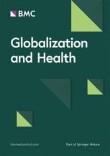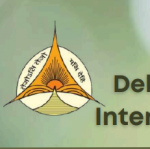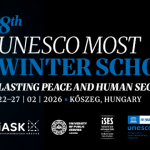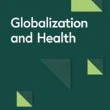Louise Fawcett, Chair of the UNU-CRIS Advisory Committee, publishes article on COVID-19 and the Middle East

A collective local response to the COVID-19 pandemic could help transcend regional divides and spur much-needed security cooperation in other areas, argues Louise Fawcett, Chair of the UNU-CRIS Advisory Committee, in her latest article published in Globalization and Health.
In the article, she outlines how, while the World Health Organization (WHO) and its regional offices have coordinated global responses, regional organizations, like the European Union, Association of Southeast Asian Nations, or African Union, have played complementary roles. Furthermore, the response of different regions has varied, revealing multiple deficits in the structures of regional governance.
The Middle East and North Africa (MENA) is a region affected by chronic ongoing conflicts and serious inequalities in health and welfare provision, reflected in the absence of concerted responses to the pandemic. Its young population has meant lower comparative mortality rates, but the socio-economic spill-over effects are grave in terms of interrupted education, high unemployment, particularly in respect to vulnerable communities like refugees and migrant workers.

With the current situation remaining critical, this article reviews the impact of COVID-19 on MENA and considers the variable performance of states and institutions to the pandemic, highlighting the shortfalls, but also opportunities for collective action. Drawing on data from the WHO, United Nations (UN), regional organizations, media and secondary sources, it first discusses the wider global-regional context; second, reviews the actions of regional bodies, like the League of Arab States, Gulf Cooperation Council and the cross-regional Organization of Islamic Cooperation; and third, looks at some country-specific situations where both evidence of good practice and the absence of appropriate regional level provision have exposed deep regional divides.
The article concludes with a call for more collaboration between states and international organizations: better regional coordination is urgently needed to supplement existing multilateral efforts.
Please click here to read the full article

Professor Louise Fawcett is Professor of International Relations and Wilfrid Knapp Fellow and Tutor in Politics, St Catherine’s College, University of Oxford, 1995 - present. From 2017-2020 she was Head of Oxford’s Department of Politics and International Relations (DPIR).
Her research focuses on comparative regional integration studies and the international relations of developing countries, notably the Middle East. Professor Louise Fawcett is also the Chair of the UNU-CRIS Advisory Committee.




